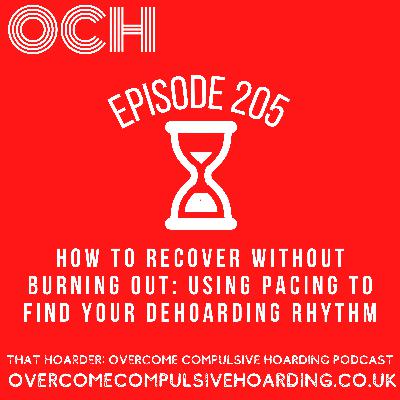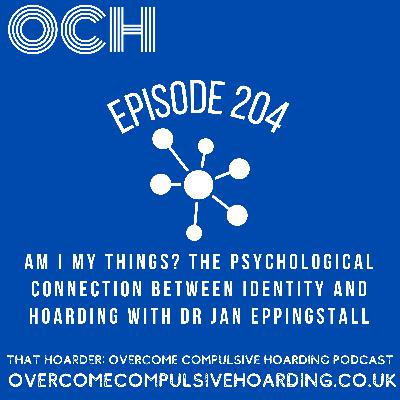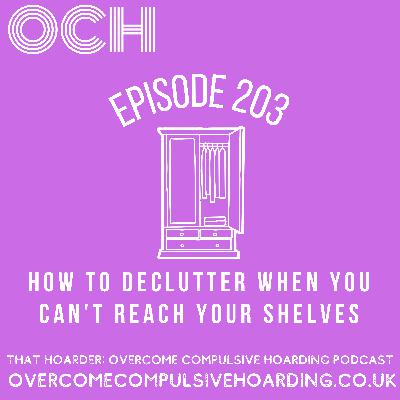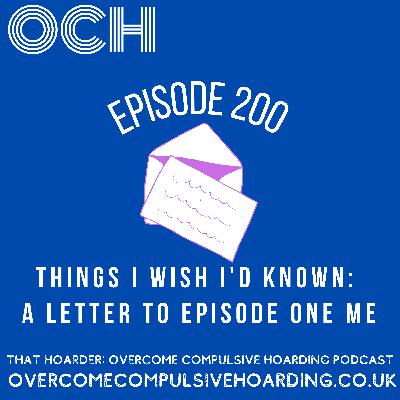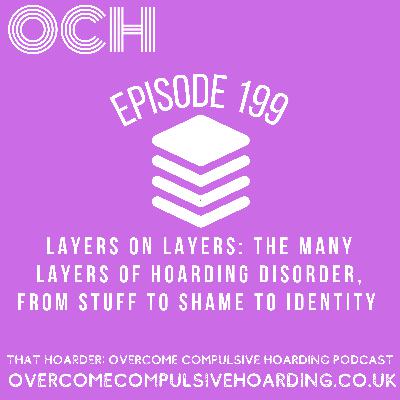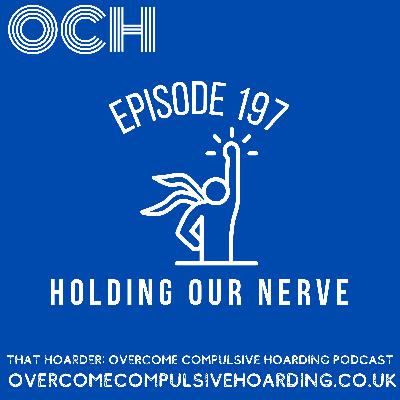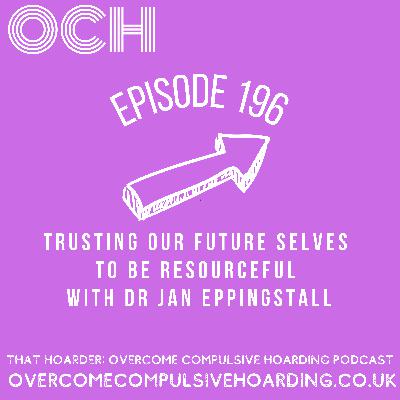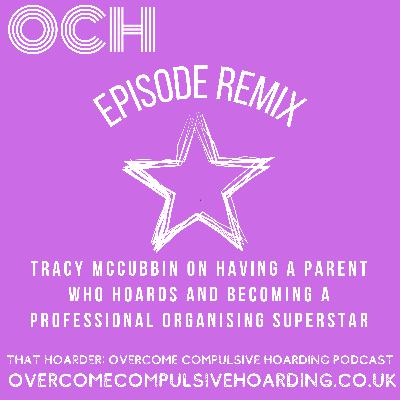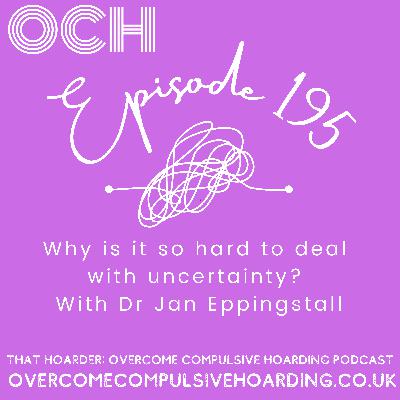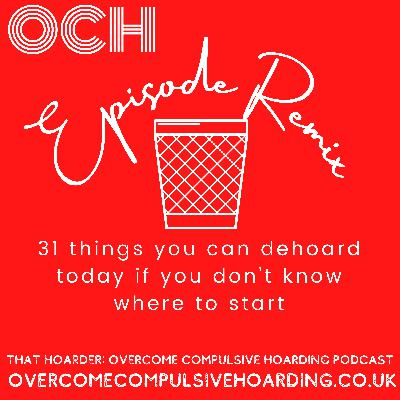#202 "Acting as if" for hoarding disorder
Update: 2025-11-01
Description
- Come to a Dehoarding Accountability Zoom Session: http://www.overcomecompulsivehoarding.co.uk/ticket
- Subscribe to the podcast: https://www.overcomecompulsivehoarding.co.uk/subscribe
- Podcast show notes, links and transcript: http://www.overcomecompulsivehoarding.co.uk/
In this episode, I talk about the idea of "acting as if" - taking action before you fully believe you can, and using that to chip away at compulsive hoarding behaviours.
I share stories from my own life, including how channelling others’ confidence helped me move through paralysing shyness, and how small steps can help shift thinking around possessions and habits.
It’s all about behaving your way to progress, even when your feelings haven’t caught up yet. Listen in to find out more, including how to go about it without burning out or being retraumatised.
- Introduction to "Acting As If"
- Explanation of the “acting as if” concept: taking action before you truly believe in it
- Shyness in childhood, learning to appreciate autumn)
- Psychological Basis for "Acting As If"
- Theory that action creates motivation
- Contrast with waiting for motivation or readiness
- Clarification: distinction from toxic positivity
- Application to Hoarding Disorder
- Connection between repeated cycles and hoarding behaviour
- How new actions create evidence and lead to belief changes
- Importance of breaking cycles of hoarding through behaviour change
- Practical Strategies for Acting As If
- Imagining how another person (someone without hoarding disorder) would act
- Acting as if items are already gone to help with psychological closure
- Acting as if you trust the process or expert advice
- Acting as if you deserve a nicer home and greater self-worth
- Acting as if letting go of items won’t be as painful as feared
- Acting as if you can tolerate discomfort
- Common Obstacles and Challenges
- Feeling like a fraud or being inauthentic
- New actions feeling unnatural
- Comparison to physiotherapy exercises: discomfort as a sign of change
- Intensification of difficult feelings and memories
- Panic, grief, anger, fear
- Navigating emotional responses and learning from them
- Separating intense emotions from actual danger
- Distinguishing between productive discomfort and harmful pushing
- Productive discomfort vs. burnout or retraumatisation
- Importance of support and learning moderation
- Slipping up after success with “acting as if”
- Giving yourself permission to start again
- Using setbacks as data, not failure
- Benefits of Acting As If
- Reduction of analysis paralysis and cognitive overload
- Achieving small wins and momentum
- Disproving fears through new evidence
- Gradual adaptation of beliefs and feelings to new behaviours
- Brain’s capacity to notice new patterns and adapt
- Tips and Encouragement for Trying “Acting As If”
- Suggests listeners identify one area to test acting as if
- Reassurance that belief is not required to begin
- Details about the Chirp Your Home decluttering course
Links
- Come to a Dehoarding Accountability Zoom session: Accountability Booking Form
- Website: Overcome Compulsive Hoarding
- Become a Dehoarding Darling
- Submit a topic for the podcast to cover
- Questions to ask when dehoarding: https://www.overcomecompulsivehoarding.co.uk/podquestions
- Instagram: @thathoarderpodcast
- Twitter: @ThatHoarder
- Mastodon: @ThatHoarder@mastodon.online
- TikTok: @thathoarderpodcast
- Facebook: Overcome Compulsive Hoarding with That Hoarder
- Pinterest: That Hoarder
- YouTube: Overcome Compulsive Hoarding with That Hoarder
- Reddit: Overcome Compulsive Hoarding with That Hoarder subreddit
- Help out: Support this project
- Sponsor the podcast
Subscribe to the podcast
Comments
In Channel


